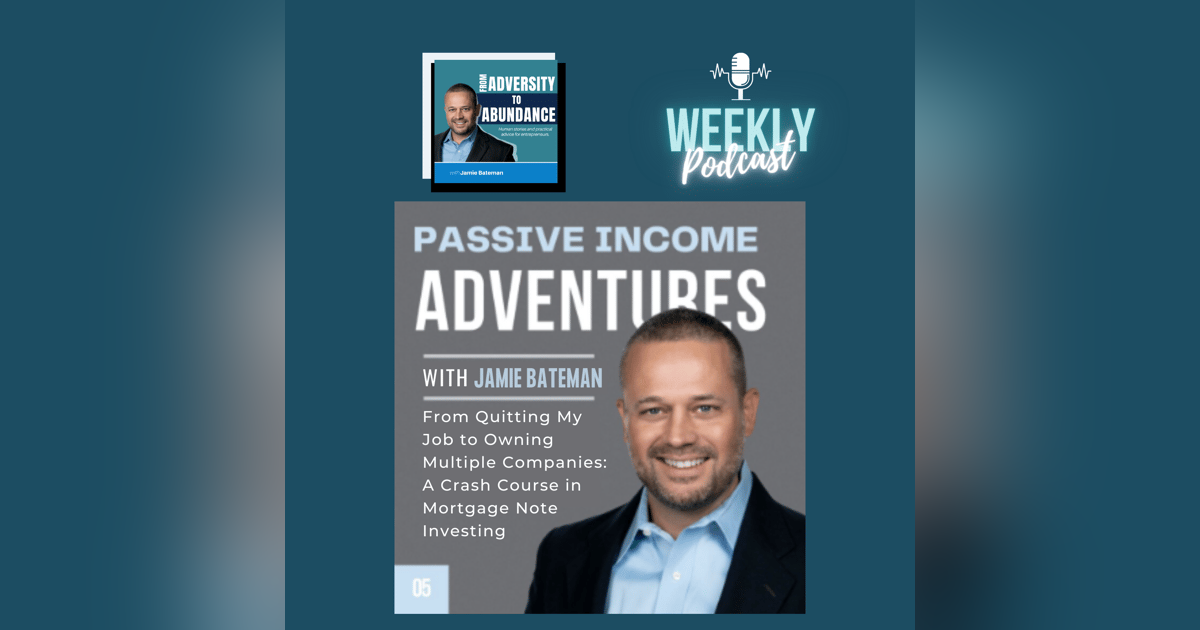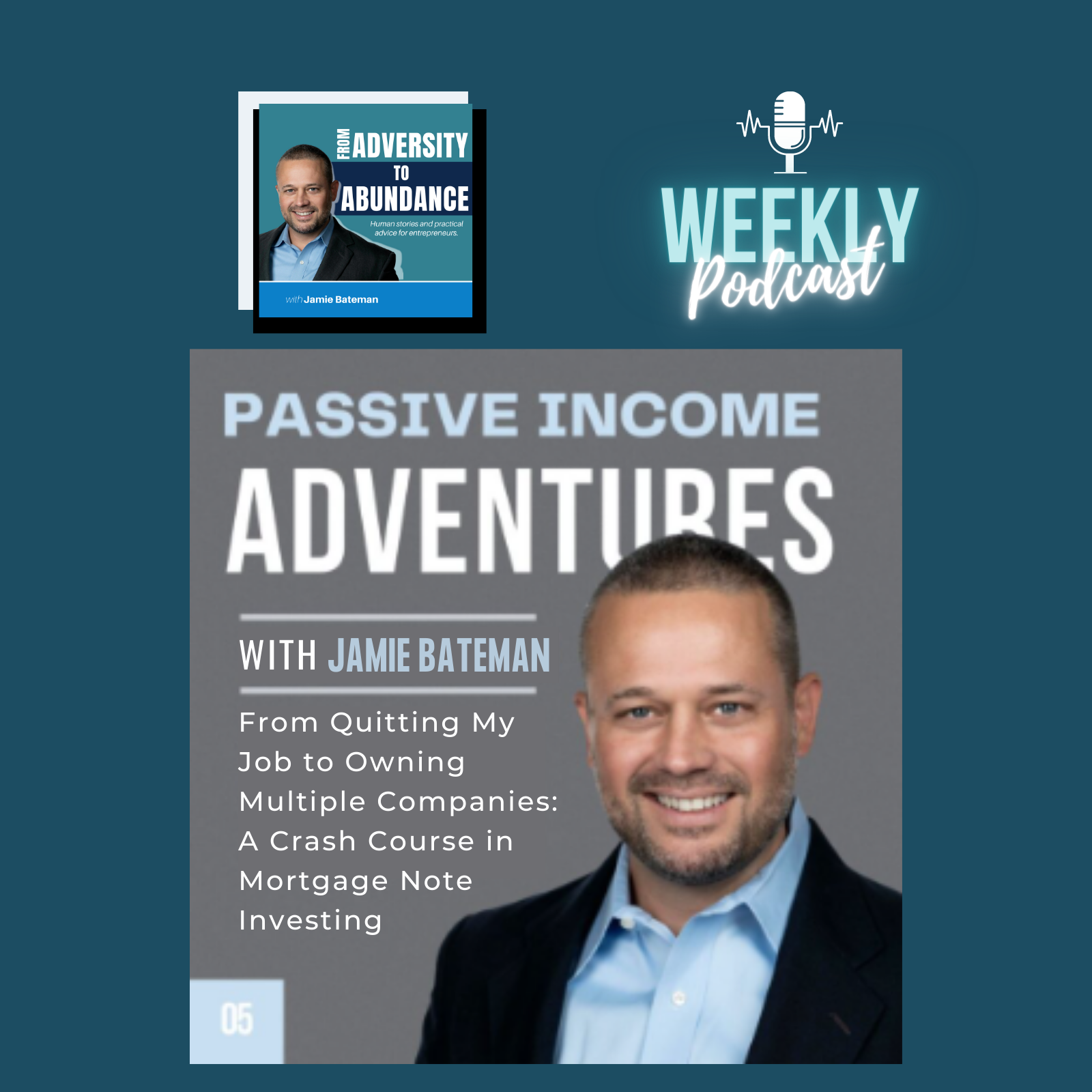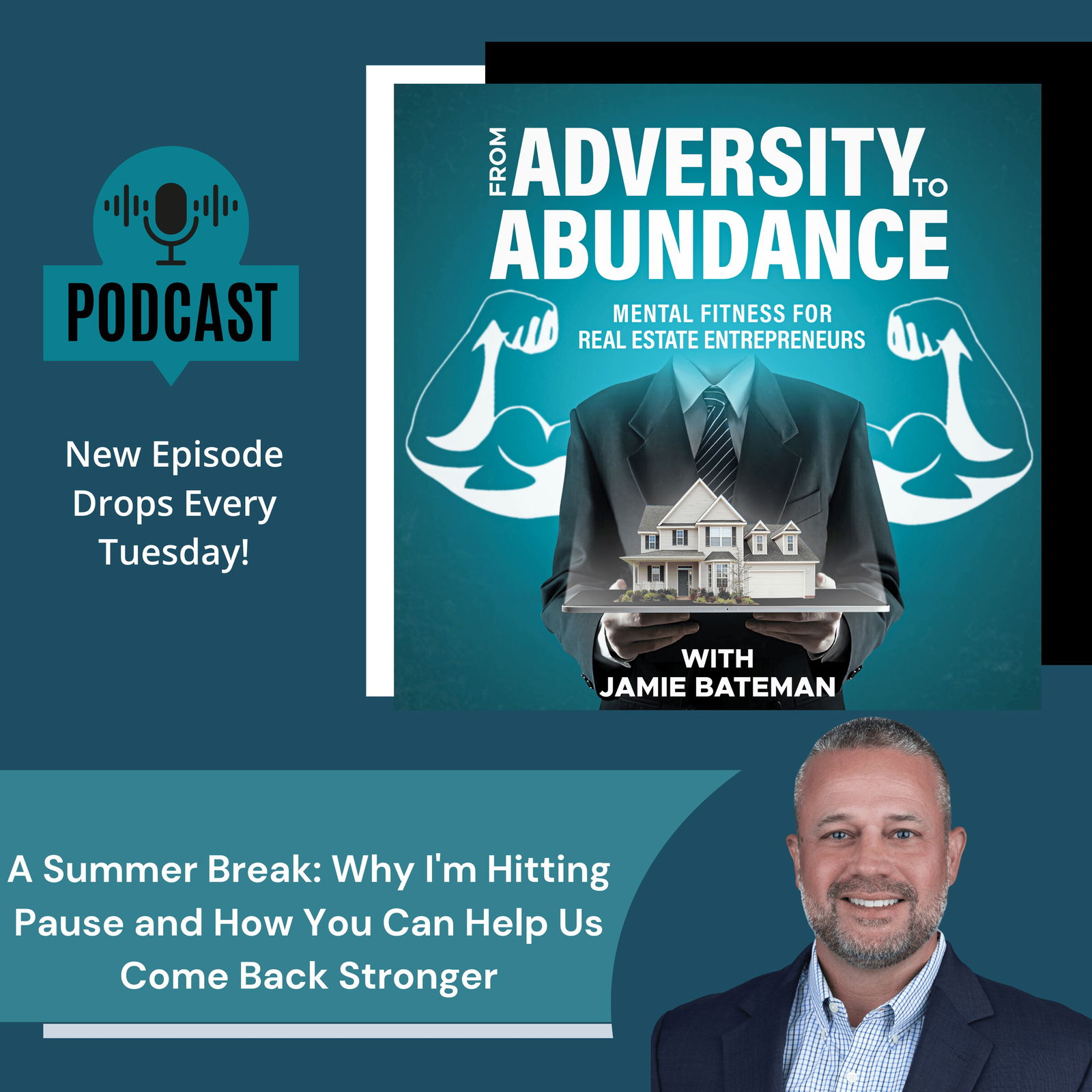From Quitting My Job to Owning Multiple Companies: A Crash Course in Mortgage Note Investing


In this episode, Jamie shares his journey from quitting his job to becoming a successful entrepreneur owning multiple companies, including a mortgage note investing and loan servicing company. He also provides a crash course on how to become a note investor yourself, while sharing tips and tricks on how to stay motivated and what he's working on.
Tune in to learn about the advantages and disadvantages of note investing, how to buy non-performing and performing mortgage notes, and why it's a more secure asset class than stocks. Whether you're a real estate professional or an aspiring investor, this episode is for you.
“more often than not, the frontline real estate professionals do not become investors.”
Making the shift always lived in the back of my mind. It wasn’t until 2015 that I invested in my first property while working a civilian job with the Department of Defense. Eventually, working there felt like groundhog day and I was losing the passion for it. Tune in for the story of why I quit my job and how I made it work after quitting.
“I do think action taking a step is critical. If someone is stuck, take a step, move in one direction. You can still turn 10 degrees and then turn back. You don't have to conquer it all immediately, but I do think taking one small step toward your goal is critical.”
A crash course in becoming a mortgage note investor:
- Buying non-preforming mortgage notes is like buying a fix and flip property: you turn it into a performing note and can sell it at a higher rate to someone else. The purpose is to exit.
- Buying a performing mortgage note is like buying a buy and hold property: its a cashflow play, you receive payments as a borrower pays off their mortgage.
- Disadvantage of note investing: The value of a mortgage note goes down over time because as the borrower pays off the principal, the interest amounts also decrease.
- Mortgage note investing is more secure than other asset classes like stocks because the real estate is always your collateral. All your investments are backed with tangible assets.
- “the most successful note investors probably have some real estate investing experience”
- Mortgage note investing is fully location independent, you can do it from anywhere.
- You don’t have to have a mortgage note business to be a mortgage note investor.
Links
Abundance through Instability and Loss with Homeschooler, Investment-Club Creator Emma Powell
Cash Flow Quadrant by Robert Kiyosaki
Rich Dad, Poor Dad by Robert Kiyosaki
Connect with Emma Powell:
PODCAST: Passive Income Adventures
LINKEDIN: https://www.linkedin.com/in/emmapowell28/
Haven Financial:
https://www.myfinancialhaven.com/jamiebateman/
ATTENTION:
Unlock the secrets to a transformative life with “From Adversity to Abundance: Inspiring stories of Mental, Physical and Financial Transformation”. Buy your copy now and embark on a journey from challenges to triumphs!
AMAZON: https://www.amazon.com/dp/B0CGTWJY1D?ref_=pe_3052080_397514860
Connect with us
WEBSITE: https://www.adversity2abundance.com
Leave us a rating or review: https://www.adversity2abundance.com/reviews/new/ or here
Got comments, feedback or suggestions? We’d love to hear it! https://www.adversity2abundance.com/contact/
Follow From Adversity to Abundance Podcast
FACEBOOK: https://www.facebook.com/profile.php?id=100089126144055
INSTAGRAM: https://www.instagram.com/adversitytoabundancepodcast/
LINKEDIN: https://www.linkedin.com/company/89949391/admin/feed/posts/
YOUTUBE: https://www.youtube.com/@FromAdversity2AbundancePodcast
Connect with Jamie
BOOK: From Adversity to Abundance: Inspiring Stories of Mental, Physical, and Financial Transformation
LINKEDIN: https://www.linkedin.com/in/jamie-bateman-5359a811/
TWITTER: https://twitter.com/batemanjames





